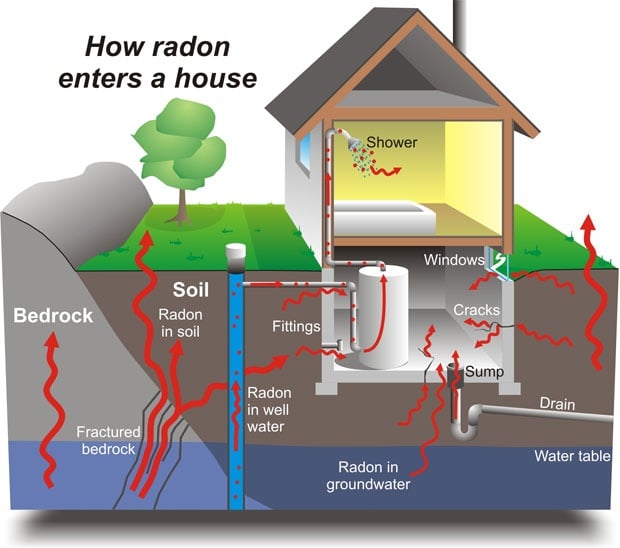Radiation Security
Is radon really bad for you?
Breathing radon over time increases your risk of lung cancer. Radon is the second leading cause of lung cancer in the United States. Nationally, the EPA estimates that about 21,000 people die each year from radon-related lung cancer. Only smoking causes more lung cancer deaths.

Therefore, every house should capitalize on radon screening, which is very easy, low-cost, as well as lifesaving, the company says. Some granite countertops may reveal individuals to various degrees of radon.
Persistent exposure to radon gas increases the risk of creating lung cancer cells. In the USA, an estimated 21,000 people die from radon-related lung cancer cells each year (compared to 160,000 lung cancer cells fatalities from smoking), according to the EPA. Radon is the second leading source of lung cancer cells, and also it's the leading root cause of lung cancer cells in nonsmokers, according to https://radon1.com/should-you-test-for-radon/ the company.
Is radon mitigation really necessary?
When radon gas enters the body, it exposes the lungs to small amounts of radiation. In small quantities, experts say this is harmless. However, in persistent exposures or larger quantities, radon can damage the cells of the lining of the lungs, increasing a person's chance of developing lung cancer.
It's impossible to reach a zero percent risk in areas where radon is common, but lowering the gas level as much as is possible deserves the effort. Smoking stays the primary reason for lung cancer in the United States. Nevertheless, radon is normally the second largest factor to the condition in any kind of provided year. You can elevate your threat for lung cancer 9 times over when you incorporate a smoking cigarettes behavior with a residence that has unsafe radon levels. Understanding just what is radon testing isn't just vital if you're a smoker or there's a smoker in your household, however it's crucial for everyone.
- Radon gas is a naturally-occurring byproduct of the radioactive decay of Uranium in the soil.
- Relying on your geographical area, the radon degrees of the air you breathe outside of your home may be as high as 0.75 pCi/L.
- The United States EPA has actually placed it simply, mentioning, "Any kind of radon exposure has some danger of causing lung cancer cells.
How do you eliminate radon?
Possible symptoms include shortness of breath (difficulty breathing), a new or worsening cough, pain or tightness in the chest, hoarseness, or trouble swallowing. If you smoke and you know you've been exposed to high levels of radon, it's very important to quit smoking.

The national standard of outdoors radon degrees is 0.4 pCi/L and it is approximated by the National Academy of Sciences that outside radon degrees create approximately 800 of the 21,000 radon caused lung cancer fatalities in the US every year. Your risk of lung cancer cells increases significantly with exposure to greater radon degrees. Lung cancer risk climbs 16% per 2.7 pCi/L increase in radon exposure. World Health Organization, 2009 studies reveal that radon is the primary cause of lung cancer among individuals that have never ever smoked.
What are the symptoms of radon in your home?
If a person has been exposed to radon, 75 percent of the radon progeny in lungs will become "harmless" lead particles after 44 years. When an alpha particle damages a cell to make it cancerous, the onset of lung cancer takes a minimum of 5 years but most often 15 to 25 years, and even longer.
While any kind of level of radon can have an effect, the EPA says analyses below 2 pCi/L is thought about typical as well as just carries a reasonably small boosted risk of lung cancer cells. It's typically difficult yet possible to reduce radon gas direct exposure below these levels. Radon Act 51 gone by Congress set the natural outside degree of radon gas (0.4 pCi/L) as the target radon level for interior radon levels. The US EPA was charged with setting practical standards and also recommendations for the country. At or over this level of radon, the EPA recommends you takecorrective procedures to lower your exposure to radon gas.
How long does it take for radon to cause cancer?
Fact: You will reduce your risk of lung cancer when you reduce radon levels, even if you've lived with an elevated radon level for a long time. Keep in mind that radon levels below 4 pCi/L still pose some risk and that radon levels can be reduced to 2 pCi/L or below in most homes.